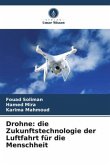Military robots are autonomous or remote-controlled devices designed for military applications. Such systems are currently being researched by a number of militaries. Already remarkable success has been achieved with unmanned aerial vehicles like the Predator drone, which are capable of taking surveillance photographs, and even accurately launching missiles at ground targets, without a pilot. A subclass of these are Unmanned Combat Air Vehicles, which are designed to carry out strike missions in combat. As of 2009, any computer program and robot is limited to weak AI, while expert systems and machine learning can be exploited with no limits within the weak AI application envelope. In the context of military robots there are ethical and moral objections to such machines. The limiting factor, as with all computer software, is formalization -- if an arbitrary task cannot be formalized it cannot be solved, e.g. even though a robot may possess optical instruments that can exceed the ability of human eyes, if the same robot is not able to interpret an arbitrary visual event taking place, then it is thus also unable to take appropriate action in response to said event.
Bitte wählen Sie Ihr Anliegen aus.
Rechnungen
Retourenschein anfordern
Bestellstatus
Storno








